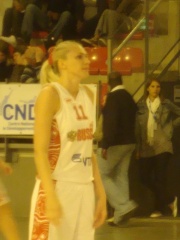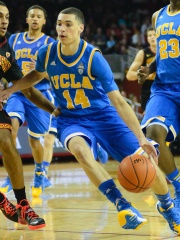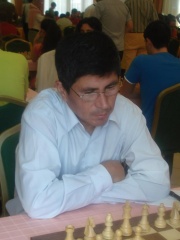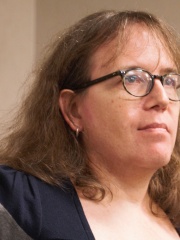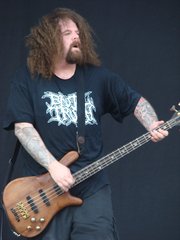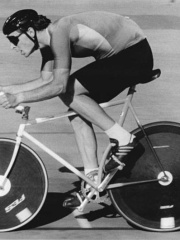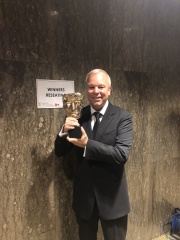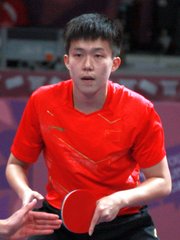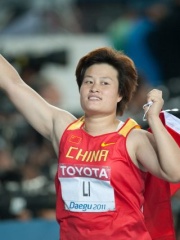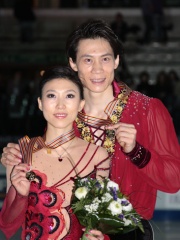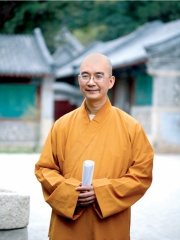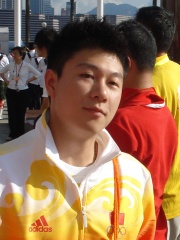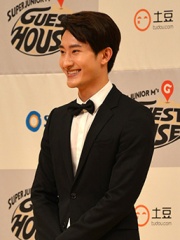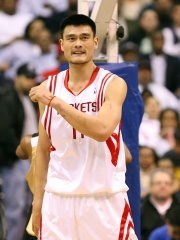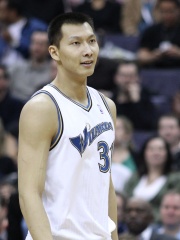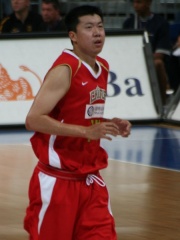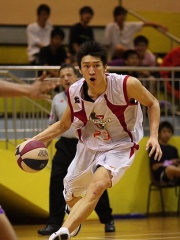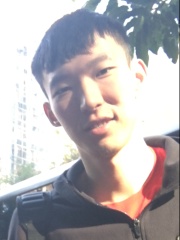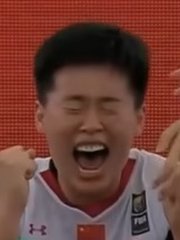Basketball Player
Zheng Haixia
1967 - today

 Zheng Haixia
Zheng Haixia
Zheng Haixia (Chinese: 郑海霞; pinyin: Zhèng Hǎixiá; born March 7, 1967) is a Chinese retired professional women's basketball player for the China women's national basketball team and the Women's National Basketball Association. Read more on Wikipedia
Her biography is available in 15 different languages on Wikipedia. Zheng Haixia is the 730th most popular basketball player (down from 667th in 2024), the 1,272nd most popular biography from China (down from 1,199th in 2019) and the 4th most popular Chinese Basketball Player.
Memorability Metrics
Page views of Zheng Haixia by language
Among Basketball Players
Among basketball players, Zheng Haixia ranks 730 out of 1,757. Before her are Luol Deng, Tariq Abdul-Wahad, Nicolás Laprovíttola, Maria Stepanova, Zach LaVine, and Bruce Brown. After her are Elton Brand, Eddie Johnson, DeMarcus Cousins, Ádám Hanga, Bill Wennington, and Donatas Motiejūnas.
Most Popular Basketball Players in Wikipedia
Go to all RankingsLuol Deng
1985 - Present
HPI: 44.15
Rank: 724
Tariq Abdul-Wahad
1974 - Present
HPI: 44.13
Rank: 725
Nicolás Laprovíttola
1990 - Present
HPI: 44.13
Rank: 726
Maria Stepanova
1979 - Present
HPI: 44.12
Rank: 727
Zach LaVine
1995 - Present
HPI: 44.12
Rank: 728
Bruce Brown
1996 - Present
HPI: 44.11
Rank: 729
Zheng Haixia
1967 - Present
HPI: 44.09
Rank: 730
Elton Brand
1979 - Present
HPI: 44.09
Rank: 731
Eddie Johnson
1959 - Present
HPI: 44.08
Rank: 732
DeMarcus Cousins
1990 - Present
HPI: 44.07
Rank: 733
Ádám Hanga
1989 - Present
HPI: 44.03
Rank: 734
Bill Wennington
1963 - Present
HPI: 44.03
Rank: 735
Donatas Motiejūnas
1990 - Present
HPI: 44.03
Rank: 736
Contemporaries
Among people born in 1967, Zheng Haixia ranks 889. Before her are Julio Granda, Julia Serano, Wilson Pérez, Ryszard Sobczak, Richard Hawley, and Rudolf Martin. After her are Flavio Zandoná, Shane Embury, Radhouane Salhi, Steffen Blochwitz, Thomas Reineck, and Steve Pemberton.
Others Born in 1967
Go to all RankingsJulio Granda
CHESS PLAYER
1967 - Present
HPI: 44.19
Rank: 883
Julia Serano
WRITER
1967 - Present
HPI: 44.16
Rank: 884
Wilson Pérez
SOCCER PLAYER
1967 - Present
HPI: 44.14
Rank: 885
Ryszard Sobczak
ATHLETE
1967 - Present
HPI: 44.14
Rank: 886
Richard Hawley
SINGER
1967 - Present
HPI: 44.12
Rank: 887
Rudolf Martin
ACTOR
1967 - Present
HPI: 44.12
Rank: 888
Zheng Haixia
BASKETBALL PLAYER
1967 - Present
HPI: 44.09
Rank: 889
Flavio Zandoná
SOCCER PLAYER
1967 - Present
HPI: 44.09
Rank: 890
Shane Embury
MUSICIAN
1967 - Present
HPI: 44.07
Rank: 891
Radhouane Salhi
SOCCER PLAYER
1967 - Present
HPI: 44.07
Rank: 892
Steffen Blochwitz
CYCLIST
1967 - Present
HPI: 44.06
Rank: 893
Thomas Reineck
ATHLETE
1967 - Present
HPI: 44.04
Rank: 894
Steve Pemberton
ACTOR
1967 - Present
HPI: 44.04
Rank: 895
In China
Among people born in China, Zheng Haixia ranks 1,272 out of 1,610. Before her are Wang Chuqin (2000), Li Yuchun (1984), Gao Min (1970), Li Yanfeng (1979), G.E.M. (1991), and Pang Qing (1979). After her are Xuecheng (1966), Zhang Xin (1965), Mengke Bateer (1975), Liu Dong (1973), Li Xiaopeng (1981), and Zhou Mi (1986).
Others born in China
Go to all RankingsWang Chuqin
TABLE TENNIS PLAYER
2000 - Present
HPI: 44.16
Rank: 1,266
Li Yuchun
SINGER
1984 - Present
HPI: 44.14
Rank: 1,267
Gao Min
ATHLETE
1970 - Present
HPI: 44.13
Rank: 1,268
Li Yanfeng
ATHLETE
1979 - Present
HPI: 44.13
Rank: 1,269
G.E.M.
ACTOR
1991 - Present
HPI: 44.13
Rank: 1,270
Pang Qing
SKATER
1979 - Present
HPI: 44.10
Rank: 1,271
Zheng Haixia
BASKETBALL PLAYER
1967 - Present
HPI: 44.09
Rank: 1,272
Xuecheng
RELIGIOUS FIGURE
1966 - Present
HPI: 44.03
Rank: 1,273
Zhang Xin
BUSINESSPERSON
1965 - Present
HPI: 43.96
Rank: 1,274
Mengke Bateer
BASKETBALL PLAYER
1975 - Present
HPI: 43.94
Rank: 1,275
Liu Dong
ATHLETE
1973 - Present
HPI: 43.93
Rank: 1,276
Li Xiaopeng
GYMNAST
1981 - Present
HPI: 43.90
Rank: 1,277
Zhou Mi
SINGER
1986 - Present
HPI: 43.90
Rank: 1,278
Among Basketball Players In China
Among basketball players born in China, Zheng Haixia ranks 4. Before her are Yao Ming (1980), Yi Jianlian (1987), and Wang Zhizhi (1977). After her are Mengke Bateer (1975), Sun Yue (1985), Zhou Qi (1996), Wang Zhelin (1994), Zhang Zhiting (1995), Wang Lili (1992), Hu Jinqiu (1997), and Yang Shuyu (2002).
Yao Ming
1980 - Present
HPI: 58.16
Rank: 1
Yi Jianlian
1987 - Present
HPI: 45.60
Rank: 2
Wang Zhizhi
1977 - Present
HPI: 45.01
Rank: 3
Zheng Haixia
1967 - Present
HPI: 44.09
Rank: 4
Mengke Bateer
1975 - Present
HPI: 43.94
Rank: 5
Sun Yue
1985 - Present
HPI: 39.74
Rank: 6
Zhou Qi
1996 - Present
HPI: 36.39
Rank: 7
Wang Zhelin
1994 - Present
HPI: 33.63
Rank: 8
Zhang Zhiting
1995 - Present
HPI: 32.96
Rank: 9
Wang Lili
1992 - Present
HPI: 31.45
Rank: 10
Hu Jinqiu
1997 - Present
HPI: 30.99
Rank: 11
Yang Shuyu
2002 - Present
HPI: 30.01
Rank: 12



